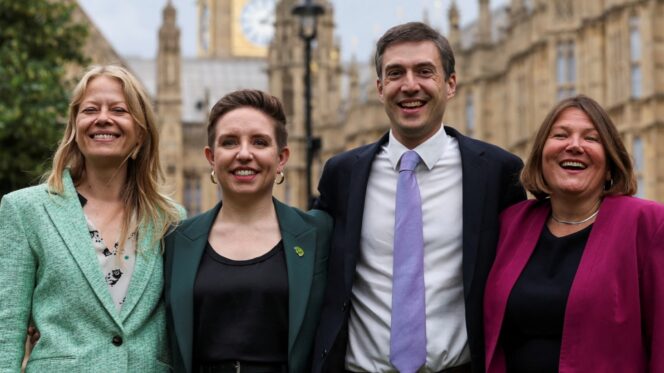Zack Polanski Is Done Talking
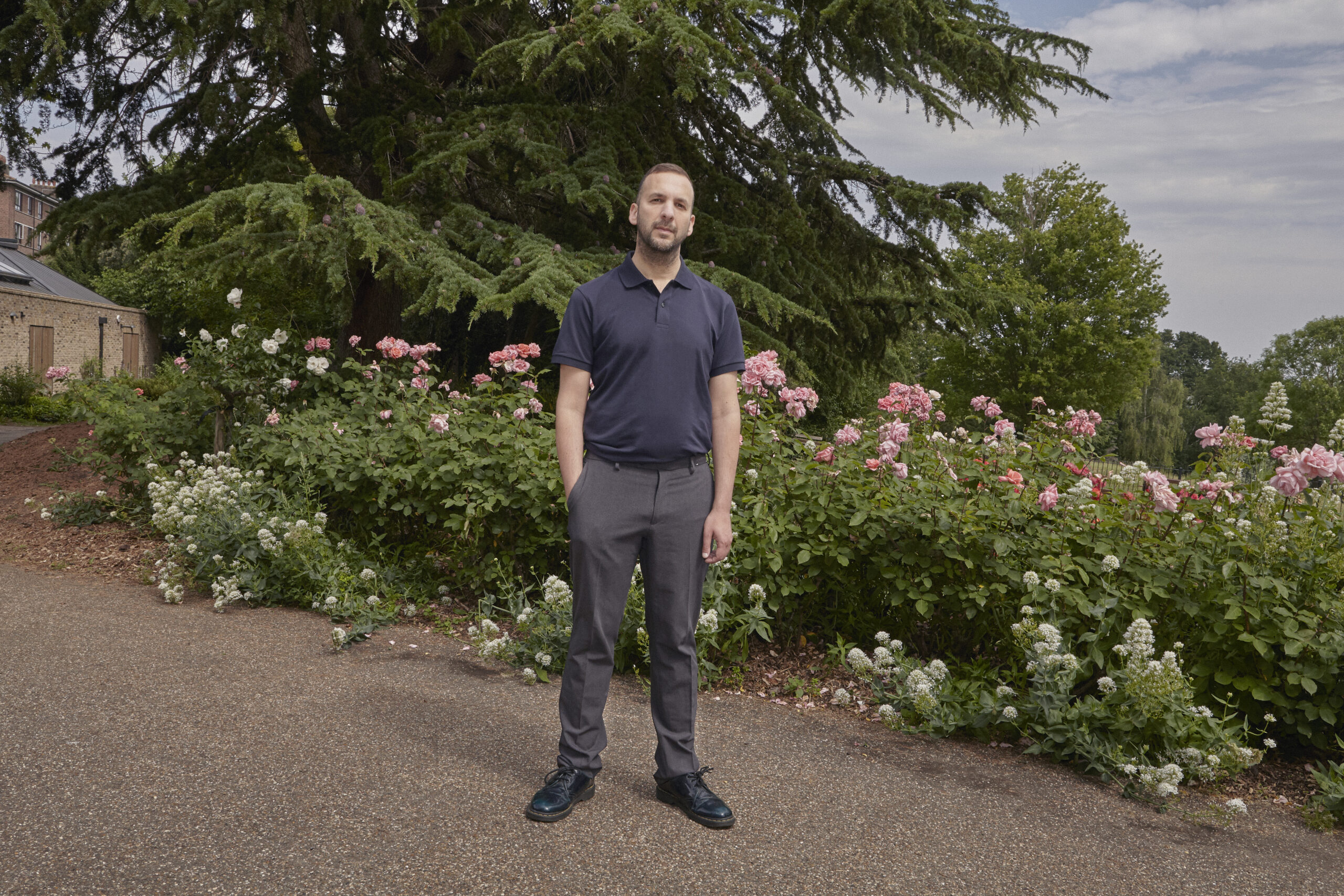
Billionaire-backed? Not us. Unlike mainstream media, Novara Media runs on the support of 12,000 people like you, which keeps us editorially independent. Chip in today and help build people-powered media.
While the American far right seems blessed with an abundance of kings, the British left could do with a few more. Jeremy Corbyn, defeated in not one but two general elections, has, for now, retreated to the backbenches, tending to his allotment and Peace & Justice Project. The anti-policing, climate and Palestine movements that have channelled some of the post-Corbyn energy have avoided naming leaders, partly to confound police (though not always successfully). T-shirts are printed with Mick Lynch’s face on them, only for him to announce his retirement. Former stockbrokers are touted as socialist seers, then swiftly punctured by withering takedowns. Anti-establishment campaigns explode and disappear. Zarah Sultana’s social media swashbuckling waxes as her parliamentary influence wanes. The UK left is desperate for leaders.
As I write this, that same left is in the grip of Mamdani mania. Zohran Mamdani, scion of postcolonial scholar Mahmood Mamdani, has today won the Democratic primary for New York City mayor, beating the billionaire-backed alleged sex pest Andrew Cuomo. Even to his haters, Mamdani is manifestly a generational talent – the socialist Barack Obama, some say. Clips of him eviscerating his Democratic rival, heckling Trump officials and giving interviews in Urdu have spread like wildfire in the left’s desert of ambition. Where did this guy come from, and why is his wife so hot? Nobody knows. Freed of the baggage of a longer political career and unsullied by the compromises demanded by it (RIP, AOC), Mamdani is, for now, uncancellable (and believe me, they tried), his simple yet radical programme to make New York cheaper, irresistible. Yet Mamdanis happen once in a blue moon. The UK can’t wait that long. In the meantime, we have Zack Polanski.
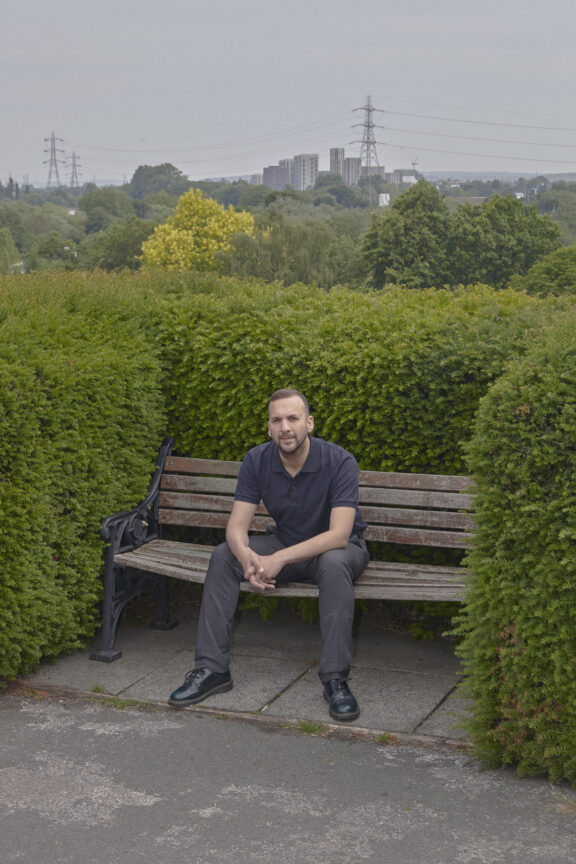
Polanski meets me in Springfield Park in north London on a sweaty June morning. A softly spoken 42-year-old with friendly eyes and a faint lisp, Polanski has neither the Colgate charisma of Mamdani – in fact, he mostly hides his gap-toothed smile in photographs – nor the laddish bluster of Nigel Farage. Then again, he also lacks the vacant helplessness of Keir Starmer and impish cynicism of health secretary Wes Streeting, so there’s that. Polanski is, in short, a nice Jewish boy (though sadly for my parents, gay). He could also be the next leader of the Green party.
Polanski’s leadership bid came as a surprise to nobody – except his own colleagues, it seems. Green MPs Ellie Chowns and Adrian Ramsay – the latter is the current party co-leader – seemed to have the contest sewn up until early May. That was when Polanski, the Green deputy leader and a member of the London Assembly, published a video setting out his “eco-populist” stall (a self-styling that drew shallow comparisons with Farage). Chowns and Ramsay complained to the New Statesman that Polanski hadn’t given them a heads-up (to which Polanski says to me: “I think people need to be careful that there’s not an entitlement that they deserve to always hand the leadership to the next person waiting”). Yet if the pair felt ambushed, they weren’t paying attention.
The Greens are on the whole a gentle bunch. Unlike Tory and Labour MPs, Green MPs aren’t whipped, a reflection of the party’s commitment to decision-making through consensus-building rather than force. There’s a sense in the party that people should be allowed to have a go: leadership elections take place every two years, and there must be three leaders (either one leader and two deputies, or two co-leaders and one deputy). Yet while not as factional as other parties, the Greens have steadily been approaching a crossroads. During the Corbyn years, the party hunkered down in the rural areas Labour ignored and the Tories took for granted. But as Labour has tacked right, younger, angrier, urban voters have turned to the Greens for hope.
Over time, this has produced a rift. On one side are those in the party who believe it needs to continue building gradual support through strategic targeting, smuggling leftist policies through centrist messaging and building up the party’s parliamentary representation one MP at a time (the Green party won its best ever result last summer, winning all four of its target seats). On the other side are those – including many Labour exiles – who think the Greens should start to launch direct attacks on the establishment to shift public opinion and turbo-charge their growth. Over his four years as deputy leader, Polanski has insinuated himself as de facto leader of the latter camp. It’s not exactly shocking that he’s now attempting to take the party in a new direction.
“They are the safe incrementalists,” Polanski says of Chowns and Ramsay, the worst he’ll say of his rivals in our entire interview (he is a Green, after all). He adds that “the biggest thing holding [the Greens] back” from capturing broad public support is the perception that they’re a single-issue party: “My whole argument [is that] if we break through on the media before even we drop a leaflet or knock on a door, people in this country already know we care about more than just the environment.”
To do this Polanski has assumed many of the positions standard in Corbyn’s Labour – namely, an economic populism coupled with staunch support for Palestine. He’s also dropped the Greens’ conflict aversion: while Chowns’ habitual responses to Labour policy is to be “deeply” or worse still, “incredibly disappointed”, Polanski’s will say things like: “Labour serve nothing but corporate elites and their billionaire backers.”
This courtship of controversy has come back to bite Polanski once or twice: in May the Daily Mail exhumed a story about him formerly being a hypnotherapist who claimed to be able to enlarge women’s breasts (he’s apologised). Yet he’s also learned the mistakes of the Corbyn years of over-apologising. Asked by the BBC’s Laura Kuennsberg to say sorry to Boris Johnson for retweeting a video by George the Poet – bear with me – which included the claim that the former PM “stopped the peace talks” between Russia and Ukraine, Polanski called it what it was: “an absurd line of questioning”.
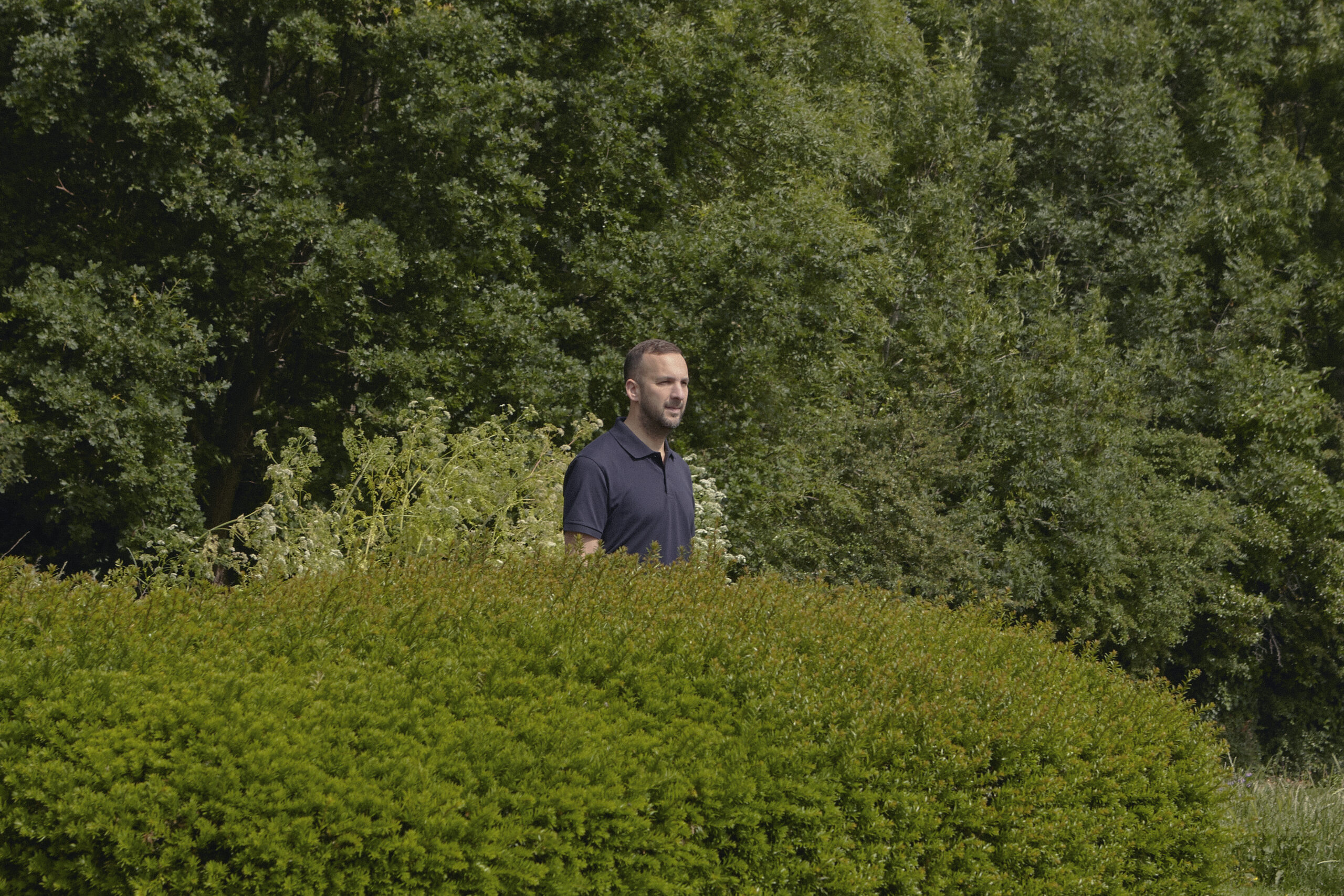
One of few glimmers of hope on the left, Polanski has become a staple of Palestine marches and picket lines. This new role as leftwing figurehead marks a change for Polanski, however, both personally – he has spent much of the last few years working quietly away in the London Assembly, where he chairs the fire committee – and politically. Not long ago, Polanski was an outspoken critic of Corbyn, and a Liberal Democrat.
By Polanski’s own admission, he’s been on a journey. “As someone who was new to politics, I really trusted the sensibles, the people walking around who sound like they know what they’re talking about … things like our national economy being like a household credit card,” he says. Polanski previously told my Novara Media colleagues that proportional representation was his main reason for joining the Lib Dems in 2015 (he stood unsuccessfully as a councillor for the party the same year), but this suggests otherwise: he also had some sympathy for the party’s austerity programme, it seems. Polanski’s flirtation with the party lasted just two years: “Once you start to listen, do a little bit of reading outside of that mainstream discourse, you realise that actually [sensible politics] is just incredibly destructive and the very worst ways to run a country, particularly if you’re looking to protect marginalised people.” He says he’s been reading a lot about Tony Benn of late.
Has his political awakening made him a socialist? After a bit of prevarication, Polanski concedes that it does. He doesn’t want to “front foot” that term, however, as he reckons it could turn people off (or be a stick to beat him with – the Tories at City Hall routinely cry “socialist” at London mayor Sadiq Khan, who is possibly about as far from one as you could be within Labour). A YouGov poll from August suggests Polanski’s right: the public’s view of socialism is deeply divided, 38% positive to 36% negative. Environmentalism, on the other hand, is a surefire winner and was the most popular ideology polled, with 64% positive to 18% negative views. Perhaps that’s why Polanski’s chosen to lead with the “eco” bit, and build his campaign around a policy that may once have sounded radical but by this point even most Tory voters admit is necessary: a wealth tax.
Polanski is less coy about his views on Israel. Raised, like most observant British Jews, in a Zionist household, Polanski attended a pro-Israel Jewish primary school in Manchester and summer-camped with Habonim Dror, a youth group with roots in the Labour Zionist movement. “Fired up” and “highly protective of Israel”, a place to this day he has never visited, the young Polanski outgrew his enthusiasm for the Jewish state. It wasn’t until 2021, however, following a visit from the IDF whistleblower NGO Breaking the Silence, that the scales fell from his eyes. Though he dodges the question of one or two states, he says with some pressing: “I think ethnostates are really unhealthy, and that we should have a commitment to democracy,” he tells me. More immediately, he adds, he thinks the conversation should be about “call[ing] out the genocide” – something he has done vociferously. Predictably, the rightwing press – including Jewish communal papers – have shown Polanski no mercy, despite his Jewishness – something he says has given him sympathy for Corbyn’s media mauling.
Polanski’s accelerated political development has provoked mixed responses on the left. Labour MP Clive Lewis told me Polanski’s politics feel “too perfect at times”: “He gives the textbook left answer.” He added that he liked Polanski, however, whom he described as “deeply impressive”, and said he was glad Polanski was taking a “far more robust leftwing stance” than typical of the Greens. Another leftwing Labour MP told Novara Media they hadn’t forgiven Polanski’s “shameful manoeuvring” to keep a Green candidate in last summer’s race in Ilford North, where Wes Streeting won by just 528 votes against independent pro-Palestine candidate Leanne Mohamad. “There’s still a long way to go before he earns credibility with the left,” they added (to this, Polanski responds that the decision to have a Green candidate stand in every constituency was the party’s, not his own, and that were the election rerun today, “I would’ve made huge attempts to encourage Leanne to join us”).
Others are unbothered by Polanski’s political CV. Economist James Meadway is one of them. “I think that’s the sort of journey many tens and hundreds of thousands of people need to make if we’re going to win,” says the economist and commentator, who recently endorsed Polanski via an op-ed in the New Statesman (he joined the party a few days prior, he tells me). “What does the Bible say about it? ‘Greater rejoicing in heaven over the one sinner who repents than the hundreds of good men,’ or whatever.”
Meadway notes the left’s tendency to self-sabotage, saying that we need to back the leaders we have, rather than imagine the ones we want. “The rest of us are just sitting there, either reading or occasionally writing books. It’s not good enough. We can all do a critique forever … and we’re going to keep on losing if that’s all we’re doing.”
For now, it seems the left has mostly managed to keep schtum or get behind Polanski. The endorsements won by the leadership contenders reflect their differing appeal. In their corner, Chowns and Ramsay have celebrity chef Hugh Fearnley-Whittingstall, a staple of middle-class kitchens everywhere; backing him, Polanski has Meadway and Grace Blakeley, two firecracker populist economists. Chowns and Ramsay have the party establishment, including former leader Caroline Lucas, the former deputy leader and one of its two lords; Polanski has its grassroots, including 107 Green councillors. Despite their incumbency and establishment, the balance seems to be leaning in Polanski’s favour: an analysis compiled by Stats for Lefties, weighting their endorsements, has Polanski more than twice as popular as Ramsay and Chowns.
It seems the party machine is aware of Polanski’s success: when contacted by Novara Media, the party declined to offer its membership data, saying it had decided not to publish the figures during the leadership campaign. It’s hard to say whether there’s precedent for this, mostly because journalists only started paying attention to the party’s internal elections relatively recently. It seems relevant that Molly Scott Cato, the party’s external communications coordinator, has endorsed Chowns and Ramsay. Asked by Novara Media why the party would not disclose its membership figures, Scott Cato did not respond.
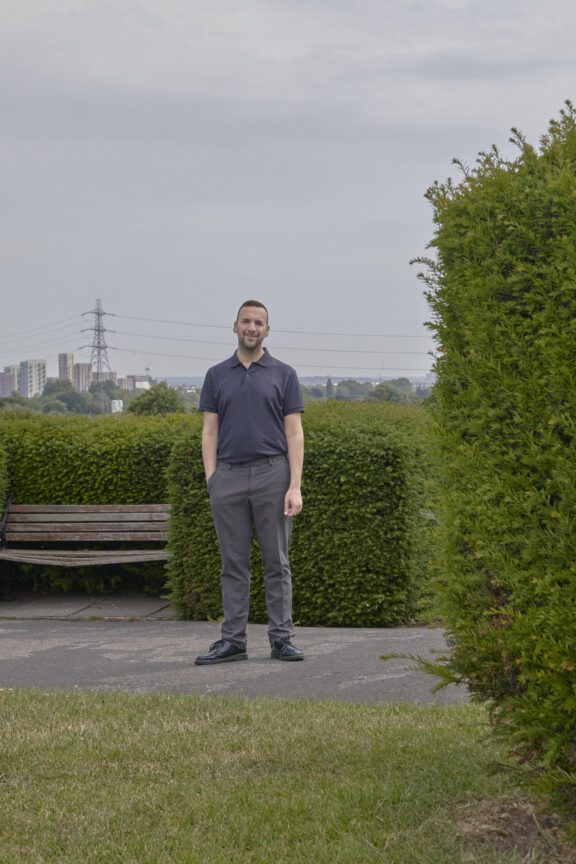
Still, Polanski is aware he’s not about to start a cult of personality – nor does he want to. He says his campaign slogan – Back Zack – made him wince at first: “There was just a little bit of me that has never been entirely comfortable with it being about one person.” This is a very Green thing to say, though an unusual admission for a former actor – Polanski previously worked in immersive and community theatre – and ironic in his particular case. Polanski’s leadership bid wouldn’t have been possible without his cultivation of a personal brand, one considerably more colourful than those of Green leaders past or present. Yet while he admits to me that some level of personality politics is necessary to winning elections – people need to remember your name at the ballot box, for one thing – he believes that pluralism is a winning strategy, too.
“Gary Stevenson [the former City trader turned economic commentator and “patriotic millionaire”] … said [to me recently] that on the right, they’re a bit like a WWE wrestling team,” he says. “They’ve got all of these characters that aren’t even necessarily in the same group, but you kind of go, ‘Oh, I know who this cast of personalities are.’ And I think in the Green party, we just don’t have that.” He becomes animated talking about the media training he wants to give to the party’s councillors.
The Greens’ democratic party structure makes such a cast of characters inevitable – the key question will be whether this cast will create a cocktail that captures the largest number of voters or become a sea of forgettable suits. Of the five candidates that have currently put themselves forward for deputy (the party will have two if there is one leader, and one if there are two co-leaders), two seem closest aligned with Polanski’s programme: Rachel Millward, the well-spoken Green leader in Wealden district council in Sussex; and Mothin Ali, a Leeds councillor and gardening YouTuber who’s put himself in explicit opposition to the Greens’ bourgeois image. Polanski, Millward and Ali could be the makings of a killer trio, one whose appeal would stretch from home counties countryphiles to pissed off formerly Labour-voting Muslims (there are quite a few). A WWE team to rival Reform’s, even.
Though he strongly rejects comparisons to Farage, Polanski is targeting many of the same voters – not the anti-immigration nuts, but people jaded by the political establishment and seeking an alternative. Adopting a similar strategy to the Reform leader (though crucially, without the fascism), he plans to exploit his status as a Westminster outsider, before running for a seat somewhere in London in 2029. I ask him how, if winning Reform-curious voters is Polanski’s strategy, he intends to approach the culture wars. Will he dial down some of the more social elements of his message that might divide people and dial up its more unifying economic aspects? He baulks.
“I think when people ask questions that pit the socially conservative people against social justice politics […] when it’s done badly, it’s so deeply corrosive to being progressive about human rights. What I would say to anyone who says, ‘Just focus on the economy, don’t worry about trans people and migrants’ [is] ‘Well, what are we transforming the country for?” He adds that Farage, a master storyteller albeit of entirely fictional stories, has shown that public opinion can be shaped – that politicians can be compasses rather than weather vanes. “The number one fundamental role of a politician is to make an argument, even when it’s not yet popular, and to make it enough times and in enough credible ways that people agree with you.” That said, he admits that when it comes to the culture wars, the right has spotlit marginalised people in a way they have no desire to be: “I don’t think [trans people] want to be put front and centre of anything. I think they just want to be allowed to pee in peace.”
Given Polanski’s love of PR, I ask if he’d be open to working with other parties. The Greens have been burned by this in the past: in 2017, the Greens offered to stand down against Labour in several seats; Labour didn’t reciprocate. Will Polanski join forces with the long-rumoured new leftwing party? It seems Polanski is a PR man no more: “Stop pissing about and join the Green party,” he says. Rumours are swirling that several Labour MPs could defect to the Greens if he becomes leader, though those I’ve spoken to seem to think this is a marketing ploy. One thing is certainly true, though: the time for pissing about is over.
Additional reporting by Adam Ramsay.
Rivkah Brown is a Novara Media commissioning editor and reporter.

